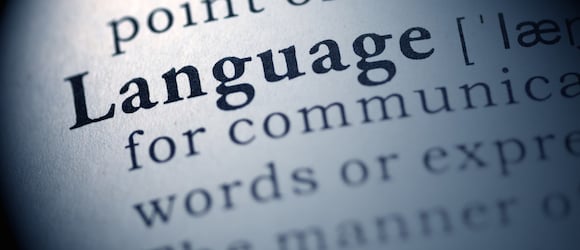Words change, and words get used different ways in different places. Ask someone from the United States what word they use to refer to carbonated beverages, and you will hear at least two different answers. Sometimes three or more. English borrows words all the time from different languages, too. In anime and manga fandom, the words involved tend to be borrowed from Japanese. Words like otaku, words like yaoi.
Otaku comes from one of the Japanese words for ‘your house’ – a polite but awkward way of referring to another person. It tells of social awkwardness borne out of isolation whether real or perceived – in a country that has as a major proverb, “the nail which sticks up gets pounded down”, isolation is viewed as a negative. Due to high-profile criminal cases such as the gruesome serial killer and necrophiliac Tsutomu Miyazaki (1989), or more recently the Akihabara Incident (2008), otaku interests – as well as the “common understanding” that the youth of Japan were alienated and felt lost as a result of various economic and social changes in Japan — got blamed for such violent behavior. The idea was, if someone is obsessively interested in a thing, that person might be so consumed and obsessed that they are not social, they know no one and no one knows them, and thus cannot function well in society.
Many American fans know this meaning. Maybe from other fans, or maybe from teachers who gave a little gasp and shook their heads when a student described themselves as an otaku. But in American English, for almost 20 years, the word otaku means “fan of Japanese things.” Usually, these “Japanese things” mean Japanese animation and manga, but can also mean music, fashion, and more. The convention Otakon uses it this way in its name and tagline: it’s “the convention of otaku generation.”
Likewise, in Japan, now otaku is starting to be used in a more gentle way to mean a fan of something; a fan of professional wrestling in Japan might use otaku just as readily as a fan of pop music bands or video games. But in Japanese, otaku still has all that history to overcome, while its American counterpart has a more positive tone: individualistic, yes, and weird, but positive nonetheless. So why is this a big deal?
Meaning is not only the dictionary definition of a word.
This is why the fanwork archive Archive of Our Own separates tags even if they might sound similar: so the tags yaoi, or male slash (for male romantic pairings), and men’s love are all separate. They might sound like they all refer to the same thing, but there might be differences: yaoi is a genre created by women, for women, for example. So the intended audience may not be the same as “men’s love”, and those might have differences from gay romance. Rendering it all as “gay romance” or “gay erotica” glosses over any differences, and creates the illusion that they all mean the exact same thing.
In translation, this is a vital point: meaning is not only the dictionary definition of a word.
Usage plays a part. Connotation – how a word or phrase is used – plays a large part. And in many cases, when words get borrowed from one language into another, these factors shift.
Words change, and words get used differently in different places.
Our language matters – so let’s be more aware of it, okay?
Kit Paige also writes at Study of Anime.
Top image copyright Shutterstock/Feng Yu.
Are you following The Mary Sue on Twitter, Facebook, Tumblr, Pinterest, & Google +?









Published: May 9, 2014 04:12 pm